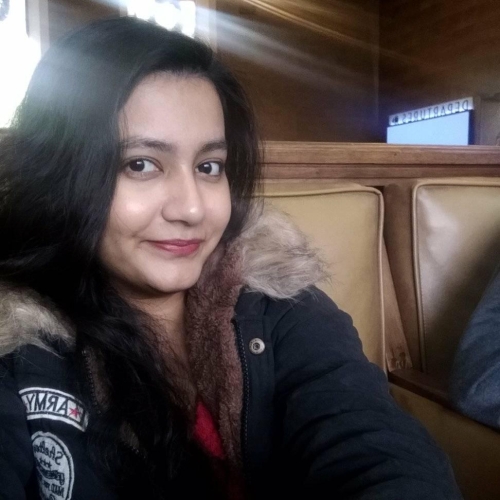ZTF Faces
This section features PhD students, postdocs and young faculty who are part of the global ZTF collaboration.
Yashvi Sharma
PhD student at Caltech, USA
Where was your starting point and how did you discover astronomy?
While growing up in Rajasthan, which is a desert region, on cool summer nights my family and I slept under the stars on the roof of our house. I would watch the skies, trying to memorize all the constellations and watching meteor showers, and immediately became fascinated with astronomy. In my school years, I just read up on the subject through encyclopedias but got more involved when I went to IIT Bombay for undergraduate studies where I joined the institute’s amateur astronomy club.
But what really set me on this career path was working with Prof. Varun Bhalerao, who in my sophomore year had just joined the department. Working with him on AstroSat data, and being involved in the GROWTH collaboration solidified my interest in observational astronomy, and I decided to apply to Caltech’s SURF program to work with Prof. Shri Kulkarni.
I worked on the ZTF Bright Transient Survey during my SURF internship and the whole experience was amazing, which motivated me to apply to Caltech for graduate studies and continue working in Time Domain Astronomy.
What are you playing with in the ZTF playground?
I started my first-year project by continuing to work on Bright Transient Survey (BTS). The main classification machine of BTS is the SED-Machine spectrograph on Palomar 60-inch telescope, which is an ultra-low resolution IFU spectrograph optimized for SNe classification. I started developing a deep learning based automatic SN classifier for SEDM spectra in my first year, which is a difficult challenge given the low resolution and a low number of spectra for training the classifier, and the software is still in development. I’m currently starting my third year of graduate school.
Recently my focus has been on peculiar SNe found in BTS that are normal at early times but eventually develop multiple peaks or slowly fading light curves; and are not Type IIn or SLSN that typically show this behavior. The most famous example of such an object is iPTF14hls that went on for more than 1000 days and developed at least five peaks but its progenitor is still shrouded in mystery. In BTS, we are finding a handful of such objects and I intend to follow them up in detail to shed light on their progenitor mechanism (whether it’s radioactivity, CSM, magnetar powered, or something else entirely like black hole accretion power).
Finally, I am also involved in building a second version of the SEDM instrument for the Kitt Peak 84-inch telescope.
Where do you want to steer your rocket in the future?
With Rubin observatory coming up in the next few years, the biggest challenge in astronomy would be dealing with the vast amount of data. I would like to develop my data science and astroinformatics skills over the next few years to efficiently classify transients and exploit the predictive power of machine learning in order to catch rarer, interesting transients. I don’t know about the distant future but in the near one, I would like to continue working in the field of time-domain astronomy, perhaps explore other wavelengths and the synergies they offer, particularly in regards to long and ultra-long duration transients.
If you were not an astronomer, what would you be?
I have always been interested in music (vocals) and dance as a hobby but never took any professional lessons when I was young. After coming to Caltech, I started learning social Tango dancing, which I absolutely love. So perhaps I would be a professional dancer or a singer, not saying a good one but more like an average one, and maybe teach dancing too.
A book that shook your worldview?
Outside of academic books, I mostly enjoy reading fantasy fiction. They are fun, but they don't really shake my worldview.
If you’ve had a bad day at work, you will….
No matter how bad a day I have at work, as soon as I see my two cats (Merry and Pippin) and pet them I forget all about it. Also, drinking good Chai helps, and as Uncle Iroh from ATLA says, “Good tea is its own reward”.
